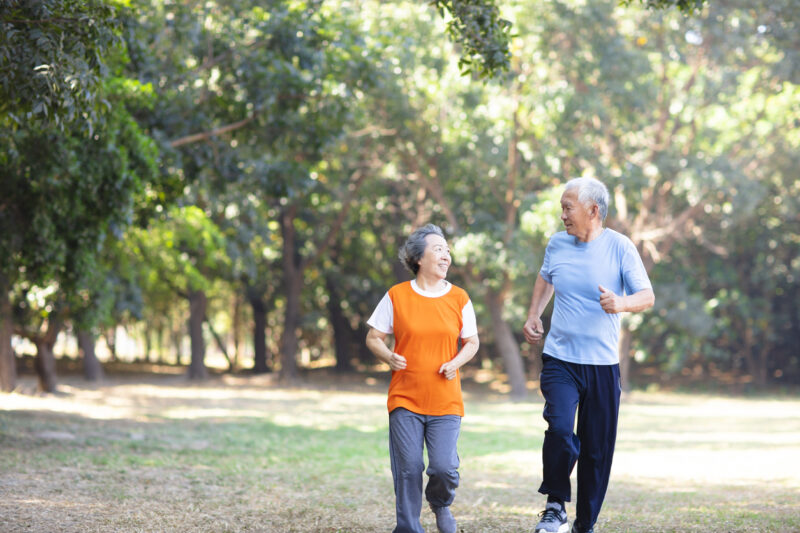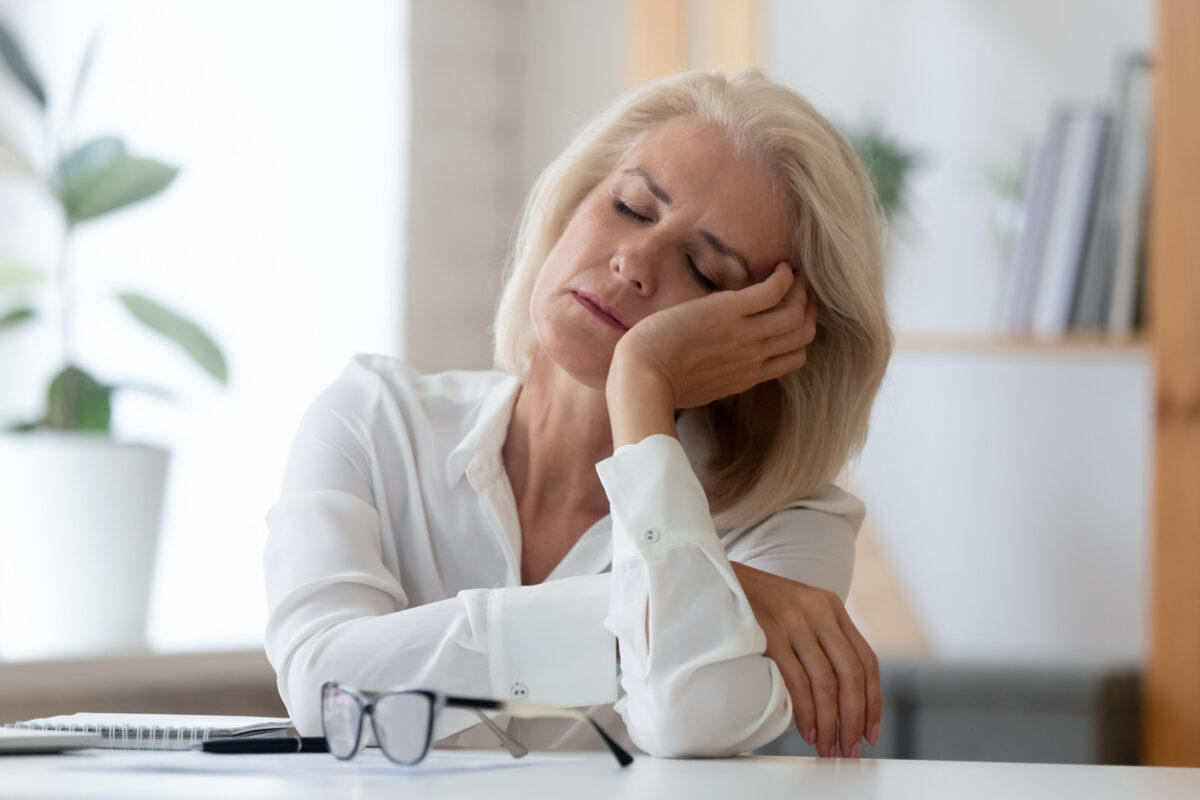What is Age-Related Fatigue and Why Does It Happen?
Age-related fatigue refers to the persistent tiredness and decreased energy levels that many people experience as they get older. This type of fatigue is more than just occasional tiredness; it can significantly impact daily life and overall well-being. Understanding its common causes is key to managing and reducing its effects.
Natural Aging Process
As the body ages, various systems begin to slow down. Metabolism decreases, and the cells’ ability to produce energy diminishes. This natural decline affects the body’s overall efficiency, leading to a gradual reduction in energy levels. The wear and tear on muscles and joints over time can also contribute to feelings of fatigue.

Hormonal Changes
Hormonal changes play a significant role in age-related fatigue. As people age, the production of essential hormones like estrogen, testosterone, and DHEA declines. These hormones are crucial for maintaining energy, mood, and overall vitality. Lower hormone levels can lead to increased fatigue, reduced stamina, and a general sense of sluggishness.
Lifestyle and Environmental Factors
Lifestyle factors such as diet, physical activity, and sleep quality can also contribute to age-related fatigue. Poor nutrition, lack of regular exercise, and insufficient sleep can exacerbate feelings of tiredness. Additionally, stress and mental health issues can drain energy over time, further compounding the problem.
Recognizing these common causes of age-related fatigue can help in developing strategies to manage it effectively. By addressing the natural aging process, hormonal changes, and lifestyle factors, it’s possible to improve energy levels and enhance overall quality of life. The following sections will explore practical solutions for combating age-related fatigue.
Lifestyle Changes to Combat Age-Related Fatigue
Making lifestyle changes can significantly reduce age-related fatigue, but putting these changes into practice can be challenging, especially when life gets busy. Balancing work, family, and personal time often leaves little room for self-care, but even small adjustments can help improve energy levels and overall well-being.
Improve Your Diet
A balanced diet is crucial in combating age-related fatigue. Incorporating nutrient-dense foods like fruits, vegetables, lean proteins, and whole grains into your meals can support energy production. Foods rich in vitamins and minerals, such as leafy greens and nuts, help the body function efficiently. Including sources of omega-3 fatty acids, like salmon and chia seeds, can reduce inflammation and enhance vitality. While it’s tempting to grab quick, processed snacks during a busy day, try to opt for healthier options that provide sustained energy. Reducing sugar and refined carbs can prevent the energy crashes that often follow a sugar high.
Stay Physically Active, Even When Busy
Exercise is one of the most effective ways to combat age-related fatigue, but finding time to work out can be difficult with a hectic schedule. When you’re already feeling tired, the idea of exercising may seem overwhelming. However, physical activity doesn’t have to mean long gym sessions. Incorporating small amounts of movement throughout the day, like taking short walks, using the stairs, or doing quick stretching exercises, can make a difference. Even light activities like yoga or stretching can boost circulation and improve energy levels. Remember, the goal is consistency rather than intensity—regular, moderate exercise is key to maintaining stamina.
Prioritize Quality Sleep
Quality sleep is essential for energy restoration, but stress and busy schedules can interfere with sleep patterns. Establish a regular sleep schedule by going to bed and waking up at the same time daily. Create a bedtime routine that signals your body it’s time to wind down, such as reading or taking a warm bath. Ensure your sleep environment is comfortable and free from distractions. Avoid screens and caffeine before bed, as they can disrupt sleep quality. By prioritizing restful sleep, you support your body’s natural ability to recover and maintain energy.
Manage Stress and Set Boundaries
Chronic stress can deplete energy and contribute to age-related fatigue. Finding time to manage stress is crucial, even with a busy lifestyle. Incorporate relaxation techniques like mindfulness, meditation, or deep breathing exercises into your day, even if it’s just for a few minutes. Setting boundaries with work and personal commitments can also prevent burnout. It’s important to recognize when to say no and make time for self-care, which ultimately helps preserve your energy and improve overall well-being.
By making these lifestyle changes, even in small, manageable steps, you can effectively combat age-related fatigue. Balancing a healthy diet, incorporating physical activity, prioritizing sleep, and managing stress can help boost energy and enhance your quality of life as you age.
Diet and Nutrition Tips for Boosting Energy Naturally
Diet plays a crucial role in managing age-related fatigue. By choosing the right foods and making mindful dietary changes, you can naturally boost your energy levels and improve overall vitality.
Focus on Whole Foods
Incorporate whole foods into your diet to provide sustained energy. Foods like fruits, vegetables, whole grains, and lean proteins are rich in essential nutrients that support bodily functions and help combat fatigue. Opt for complex carbohydrates, such as oats, quinoa, and sweet potatoes, which release energy slowly, preventing sudden spikes and crashes in blood sugar levels. Whole foods also provide fiber, which aids in digestion and helps maintain steady energy levels throughout the day.
Include Protein-Rich Foods
Protein is essential for maintaining muscle mass and supporting overall energy. Include lean protein sources like chicken, fish, beans, lentils, and tofu in your meals. Protein helps repair and build tissues and provides a steady source of energy. Pairing protein with complex carbohydrates can keep you full and energized for longer periods, reducing the likelihood of mid-day energy slumps.
Stay Hydrated
Dehydration can often be mistaken for fatigue. Ensure you drink enough water throughout the day to keep your body hydrated and functioning optimally. Hydration helps transport nutrients and oxygen to cells, which can improve energy levels and reduce the symptoms of age-related fatigue. Herbal teas and water-rich foods like cucumbers and watermelon also contribute to your daily fluid intake.
Balance Your Meals
Aim for balanced meals that include a mix of macronutrients: carbohydrates, proteins, and healthy fats. Healthy fats, such as those found in avocados, nuts, and olive oil, provide a concentrated source of energy and aid in the absorption of fat-soluble vitamins. A well-balanced diet ensures that your body receives the necessary nutrients to support energy production and overall health.
By focusing on a diet rich in whole foods, protein, and proper hydration, you can naturally boost your energy and help reduce the impact of age-related fatigue. These dietary changes not only improve energy levels but also contribute to better overall health and well-being.
The Role of Hormones in Age-Related Fatigue
Hormones play a significant role in regulating energy levels, mood, and overall vitality. As we age, hormonal changes can contribute to age-related fatigue, making it essential to understand and address these shifts.
Decline in Estrogen and Testosterone
For both men and women, the natural decline in hormones like estrogen and testosterone can lead to fatigue. In women, menopause brings a sharp decrease in estrogen levels, which can result in lower energy, mood swings, and sleep disturbances. In men, testosterone levels gradually decline with age, affecting stamina, muscle strength, and overall energy. These hormonal changes disrupt the body’s ability to maintain energy balance, leading to increased feelings of tiredness and decreased motivation.
Impact on Sleep and Energy
Hormones like estrogen and testosterone influence the quality of sleep, which directly impacts energy levels. Lower estrogen levels can cause night sweats and hot flashes in women, disrupting sleep patterns and contributing to age-related fatigue. Testosterone helps regulate sleep cycles, so its decline can lead to less restful sleep in men. Poor sleep quality exacerbates fatigue, creating a cycle of low energy and diminished well-being.
Hormone Balance and Energy Restoration
Supporting hormone balance can play a crucial role in combating age-related fatigue. Maintaining a healthy lifestyle, including a balanced diet, regular exercise, and stress management, can help support natural hormone production. Additionally, supplements designed to support hormonal balance can aid in restoring energy levels. By addressing hormonal imbalances, you can potentially reduce the symptoms of fatigue and improve overall vitality.
Understanding the role of hormones in age-related fatigue allows you to take proactive steps in managing energy levels. Focusing on hormone health, alongside diet and lifestyle changes, can help you regain energy and enhance your quality of life as you age.
Juveriente Effisoy: A Natural Solution for Hormonal Balance and Energy Restoration
Juveriente®’s Effisoy® offers a natural solution to combat age-related fatigue by supporting hormonal balance. Launched in 2016, Effisoy® is based on fermented soybean germ extract, a traditional Japanese ingredient known for its potential to ease menopause symptoms and improve overall vitality.
Effisoy® works by boosting the body’s natural synthesis of DHEA, a hormone precursor crucial for maintaining balanced hormone levels. As we age, the body’s ability to produce DHEA declines, contributing to symptoms of fatigue and decreased energy. Effisoy® helps restore this balance by enhancing the body’s own hormone production processes. It supports hormonal balance safely, without introducing external hormones, allowing your body to regulate its hormone composition naturally.
This balance not only aids in reducing age-related fatigue but also promotes healthier skin and overall well-being. While Effisoy® benefits both men and women, it has become especially popular among women experiencing menopause, helping to alleviate symptoms like fatigue, mood swings, and skin aging.
By addressing the hormonal changes associated with aging, Juveriente®’s Effisoy® provides a natural and effective way to restore energy levels and combat age-related fatigue, helping you feel more vibrant and energized as you age.
Here are some of the real product reviews in our Amazon shop.
“Restful sleep finally!!”, “I Am Now Free of Hot Flashes!!”, “Lifesaver”






